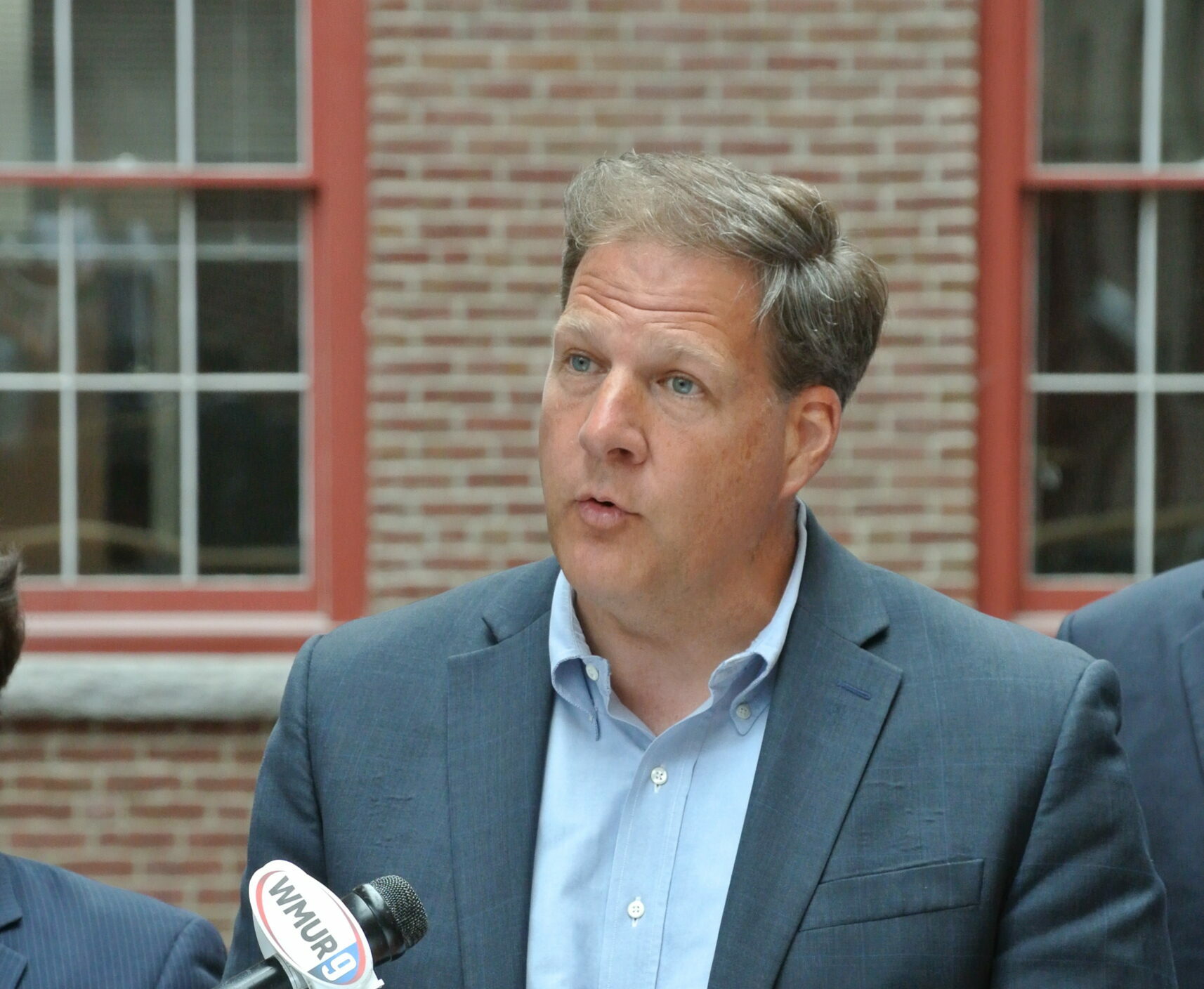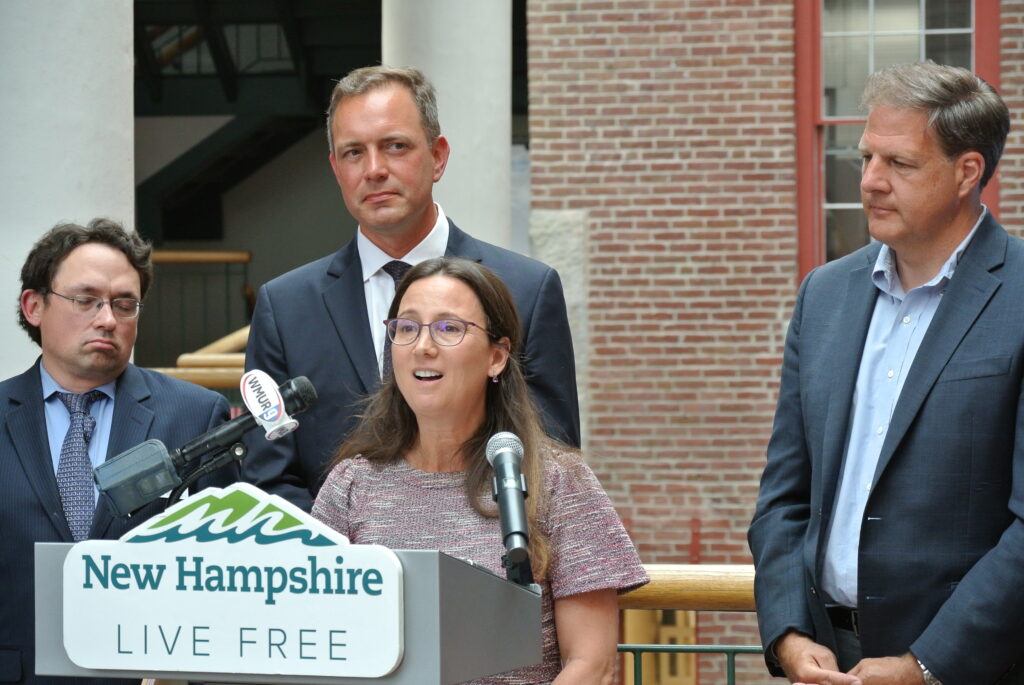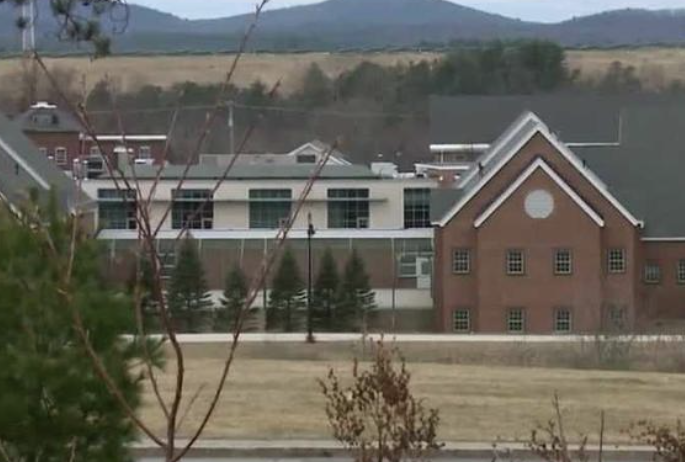Sununu Launches $100M ‘InvestNH’ Initiative to Fight Housing Shortage

Thousands of housing units could be added to New Hampshire in the coming months if Gov. Chris Sununu and his allies in the state’s business community get their way.
Sununu unveiled details of his $100 million investment plan on Tuesday. He hopes it will alleviate the housing crisis that experts say is making it harder for employers to recruit workers and for young people to remain in the state.
Starting next week, developers will be able to apply for money from the new InvestNH Housing Fund, which will help cover the financial gaps in hard construction costs on affordable multi-family developments.
“We’re moving quickly. We don’t want to just talk about things in this state, we want to make them happen,” Sununu said.
Though New Hampshire’s economy is booming, the lack of affordable housing could put that growth in danger. There are tens of thousands of high-paying jobs available in New Hampshire, but not enough potential workers can find places to live, Sununu said.
“We just need affordable housing in this state to keep up with the level of economic growth,” Sununu said.

Elissa Margolin, director of Housing Action NH.
Businesses cannot find workers, and people are not taking jobs in the Granite State because there is nowhere to live. Ellisa Margolin, director at the non-profit Housing Action NH, said the $100 million fund represents a serious effort to address the crisis that impacts the state’s entire economy.
“The workforce shortage that we’re experiencing is directly related to our shortage of housing in this state,” Margolin said. “If it’s difficult for a new medical resident to accept his residency at an area hospital because he can’t find housing he can afford, you can imagine what it’s like for a single parent with children.”
Nicole Ward, general manager at the Copper Door in Bedford, is lucky enough to live in workforce housing located behind the restaurant. She said the potential for more businesses to be able to provide affordable housing for employees will make for better businesses and communities.
“I just think a project like this, being able to provide more affordable living for employees like myself, would lead to a better work ethic, more longevity and less turnover, and a better work environment altogether,” Ward said.
The InvestNH Housing Fund will use money from the state’s portion of the American Rescue Plan Act. The fund will direct $60 million to go toward developers. Of that, $10 million will go to the New Hampshire Housing Authority, and another $10 million is earmarked for non-profit and small-scale for-profit developers.
The remaining $40 million is going to municipalities to help streamline the process to get the projects built. There is also money municipalities can use to demolish old structures and for updating zoning ordinances to meet current needs.
Taylor Caswell, New Hampshire’s Business and Economic Affairs commissioner, said the state wants to encourage affordable multi-family developments, whether it is a large apartment project or a small Victorian home on Main Street that could be converted into a five-unit apartment building.
“The goal is to get more units online as fast as possible,” he said.
According to the Josiah Bartlett Center for Public Policy, a free-market think tank based in Concord, the unwillingness of communities like Manchester to allow more housing construction has limited their growth when compared to nearby communities.
Between 1970 and 2020, the total number of housing units in the Queen City grew by just 37 percent. In Salem, they grew by 76 percent, in Nashua by 80 percent, and statewide by 127 percent. As a result, Manchester’s population and economic growth also lagged behind.
“Because city officials chose to limit growth, Manchester’s population and economy have grown at a slower rate than the rest of the state as a whole,” wrote the Bartlett Center’s Drew Cline. “Artificially limiting the city’s housing supply created a drag on the city’s economic growth and cultural life.”
The state’s housing shortage, which is contributing to its employee shortage, is just one of the current challenges facing the state. Another is the recent announcement of soaring electricity rates from the state’s largest utilities. Sununu recently announced a $60 million utility bill relief package that includes a one-time $100 dollar grant to some 600,000 electric ratepayers. He also has plans to address the looming home heating crisis that will take hold this winter as oil costs continue to skyrocket.
Sununu said Washington is to blame for rising prices that are hurting New Hampshire families.

Commissioner of the New Hampshire Department of Business and Economic Affairs Taylor Caswell.
“This energy crisis in America — the Biden administration has created a massive problem,” Sununu said Tuesday. “When it costs you twice as much to put gas in your car, it’s going to cost you at least twice as much to put home heating oil into your tank.”
Sununu’s Democratic opponent in November’s election, state Sen. Tom Sherman (D-Rye) dismissed Sununu’s efforts as too slow and lacking in transparency.
“New Hampshire’s housing crunch is making it difficult for families to pay their bills each month and companies to find workers,” Sherman said. “While Granite Staters have been struggling for years, Sununu delayed so long in distributing rental assistance funds that nearly $20 million in federal funds were reallocated to other states. Sununu was the last governor in the region to put ARP funds towards affordable housing and chose to create a brand new program with more red tape instead of efficiently investing in existing programs. We need to make sure this is a transparent process that helps Granite Staters, not just a handout to campaign donors during an election year.”
Sununu said he was working with House Speaker Sherman Packard, R-Londonderry, and Senate President Chuck Morse, R-Salem, to address the heating crisis using state surplus funds. Sununu’s plan would allow the state to expand eligibility for heating assistance so that more families would be able to benefit. He is not interested in waiting for Congress to change the rules to make the federal assistance program more accessible as Granite Staters struggle to heat their homes.
“We are not going to wait for the winter to see if the feds get around to fixing their problem,” Sununu said.
Information about the InvestNH Housing Fund and how to apply can be found at www.invest603.com.




